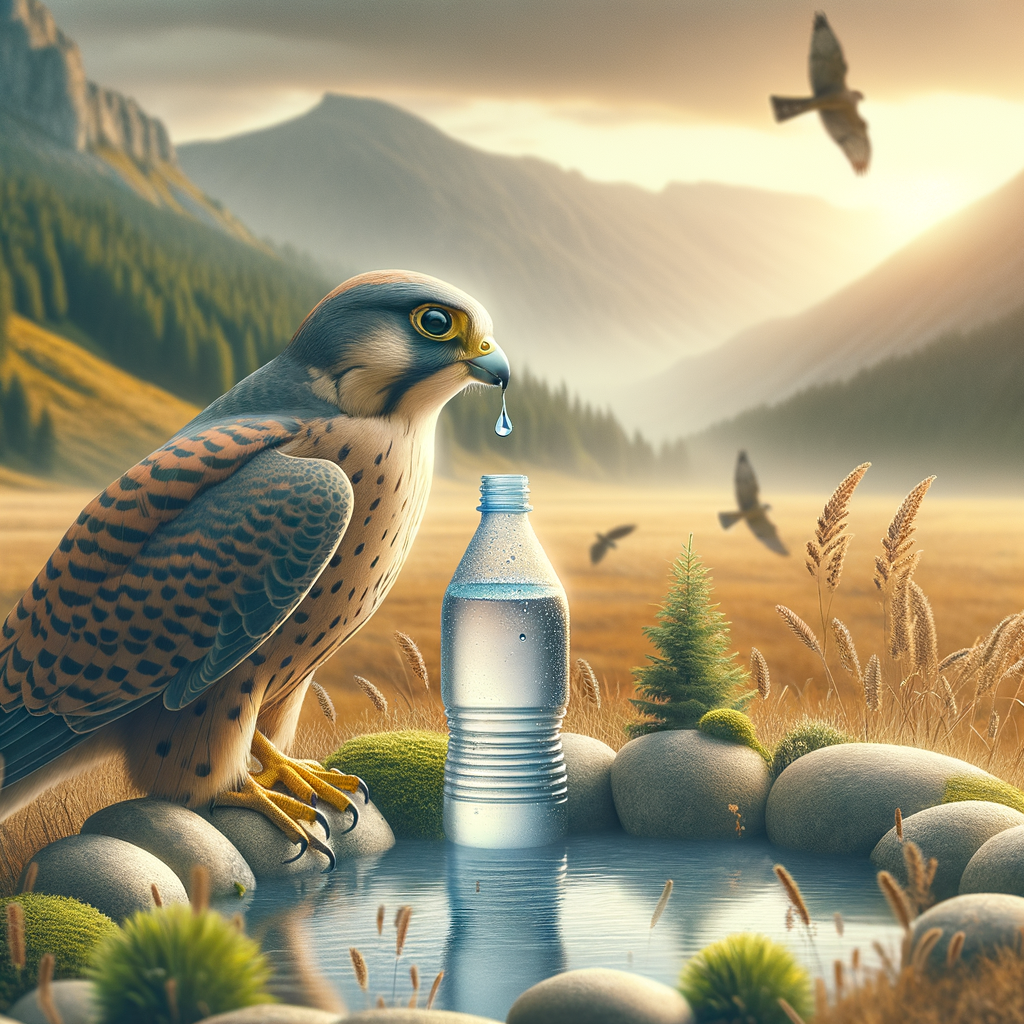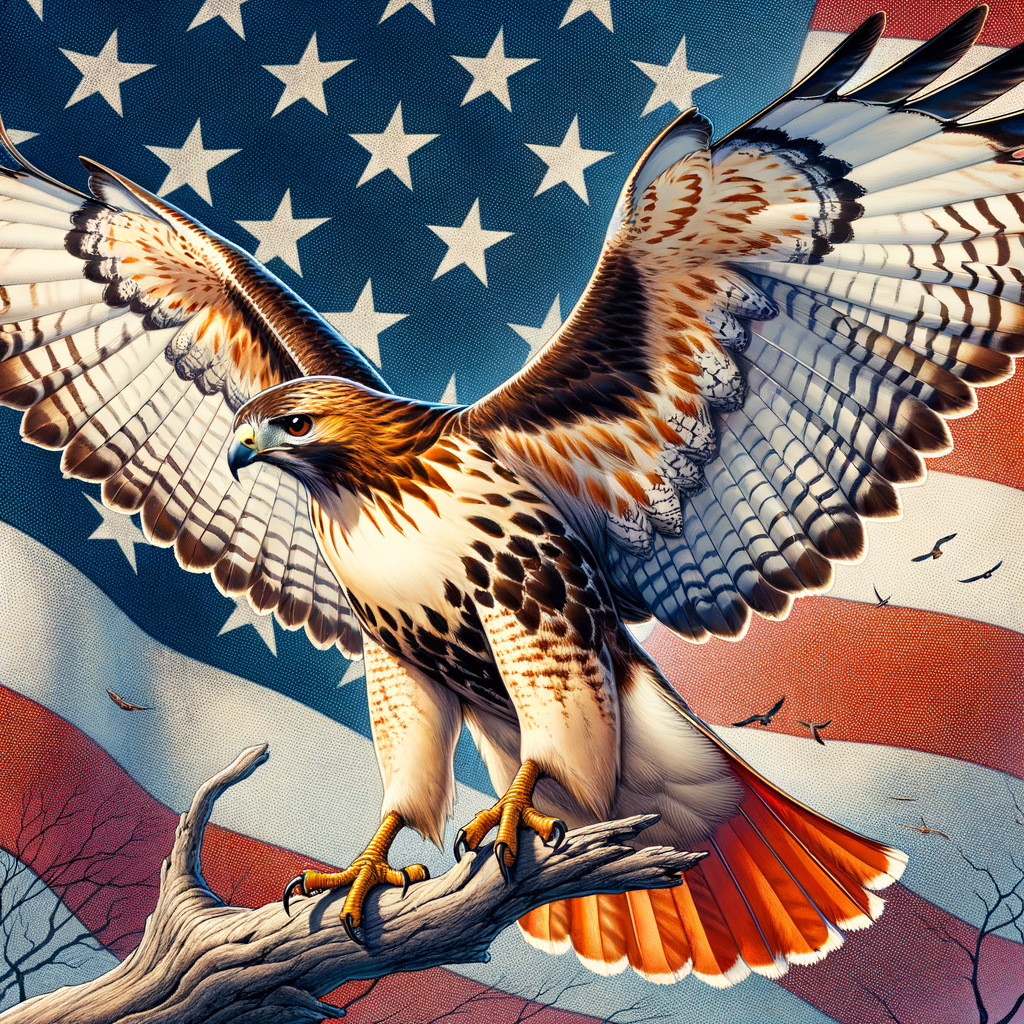Essential Hydration Facts for Falcons
- Importance of Hydration: Falcons need proper hydration to maintain their health and performance levels.
- Water Source: Always provide clean, fresh water for falcons, both in captivity and in the wild.
- Daily Water Intake: Keep an eye on their daily water intake; falcons need consistent access to water.
- Signs of Dehydration: Look out for sunken eyes, lethargy, and dry membranes as signs of dehydration.
- Hydration Methods: Offer water in a shallow dish; misting their feathers can also help.
- Hydration During Training: Ensure falcons are well-hydrated before and after training sessions.
- Effects of Dehydration: Dehydration can lead to severe health issues including kidney damage and decreased flight ability.
- Balanced Diet: Incorporate water-rich foods into their diet to contribute to their hydration needs.
- Monitoring Weather Conditions: Be extra vigilant in hot weather when falcons can lose water more quickly.
- Veterinary Care: Consult a vet if you suspect your falcon is dehydrated for professional advice and treatment.
Why Hydration is Crucial for Falcons: Keep Reading to Find Out!
Hello Learn Falconry enthusiasts! Imagine for a moment you’re taking a lovely stroll through the lush greenery of Ireland, with a refreshing cool breeze brushing against your face. You wouldn’t embark on such a journey without a trusty water bottle, right? Just as the Irish terrain can be demanding on human bodies, the skies and challenges faced by our majestic falcons require them to stay well-hydrated too.
In our latest article, we’ll unravel why hydration is paramount for your feathered friend. We’ll guide you through the necessity of water in their diet, how it affects their incredible flying abilities, and tips on ensuring your falcon remains in prime condition. So, whether you’re a novice bird enthusiast or a seasoned falconer, join us to learn essential hydration tips to keep your falcon soaring high and healthy!
Stay tuned and let’s dive into the mesmerizing world of falconry with a splash of hydration!
Importance of Hydration for Falcons
Falcons are majestic birds of prey that need special care, especially when it comes to their hydration needs. Ensuring proper falcon hydration is crucial for their health and well-being. Just like humans, falcons require water to stay healthy and active. So, let’s dive into the world of watering falcons and understand their falcon water needs!
Why Hydration is Important
Falcons, like all living creatures, need water to survive. Water is essential for maintaining their body functions like digestion, temperature regulation, and overall cellular processes. Without adequate hydration, falcons could face serious health issues. Dehydration can lead to fatigue, a weakened immune system, and even severe digestive problems.
How to Ensure Proper Falcon Hydration
When caring for falcons, it’s important to always provide fresh, clean water. This can be done using special bathing and watering equipment designed to suit their needs. Falcons drink water, but they also use it for bathing, which helps keep their feathers clean and skin healthy.
Tips for Watering Falcons:
- Accessible Water Source: Make sure the water bowl or dish is shallow and accessible. Deep containers might be dangerous as falcons can accidentally drown.
- Frequency: Refresh the water daily to ensure it’s always clean. Stagnant water can harbor bacteria and parasites that are harmful to falcons.
- Location: Place the water dish in a secure and familiar spot where the falcon feels safe to approach and drink.
Recognizing Falcon Dehydration
Understanding the signs of dehydration in falcons can help prevent health issues. Some common signs to watch for are lethargy, sunken eyes, dry mucous membranes, and loss of appetite. It’s important to regularly observe your falcon’s behavior and physical condition. If you notice any of these signs, make sure to consult a veterinarian immediately.
For more detailed information on falcon health and nutrition, you might find our article on Falcon Health Nutrition very helpful.
Additional Resources
To further understand falcon care, hydration, and more, check out our comprehensive guides on various topics:
By staying informed and attentive, you can ensure your falcon stays happy, healthy, and well-hydrated.
Importance of Hydration for Falcons
When taking care of falcons, keeping them hydrated is essential for their health and well-being. Falcons, like any other living creature, need water to survive and stay healthy. Lack of water can lead to dehydration, which can cause serious health issues or even death in extreme cases.
Falcon Hydration Needs
Falcons require a significant amount of water daily. An average-sized falcon might need around 5-10 milliliters (ml) of water per day. This amount can vary depending on factors like the falcon’s activity level, the weather, and its diet.
| Falcon Size | Daily Water Intake (ml) |
|---|---|
| Small Falcon | 3-5 ml |
| Medium Falcon | 5-10 ml |
| Large Falcon | 10-15 ml |
How Falcons Get Hydrated
Falcons in the wild get most of their water from the prey they eat. Prey animals, like birds and small mammals, contain a lot of water, which helps falcons stay hydrated. However, falcons also drink water directly, especially in hot and dry climates.
Signs of Dehydration in Falcons
Knowing the signs of dehydration is crucial for anyone taking care of falcons. Here are some common signs to look out for:
- Sunken Eyes: Eyes may appear dull and sunken.
- Dry Skin and Beak: Skin, beak, and feet look dry.
- Lethargy: The falcon appears weak and less active.
- Loss of Appetite: Less interest in eating food.
- Thickened Saliva: Saliva becomes stickier and drier.
Methods to Ensure Proper Hydration
To keep falcons well-hydrated, follow these tips:
- Provide Fresh Water Daily: Make sure there is always clean, fresh water available.
- Use Suitable Bowls: Use sturdy bowls that cannot be easily tipped over.
- Monitor Weather Conditions: Increase water supply during hotter temperatures.
- Hydrate with Food: Include moist food items that have high water content.
- Use Electrolytes: Consider using electrolyte supplements in water to maintain hydration levels, especially during stress or illness.
Falcon Water Consumption Example
Let’s consider an example of a medium-sized falcon’s water consumption:
| Date | Water Provided (ml) | Water Consumed (ml) |
|---|---|---|
| June 1, 2024 | 10 ml | 8 ml |
| June 2, 2024 | 12 ml | 10 ml |
| June 3, 2024 | 15 ml | 14 ml |
| June 4, 2024 | 12 ml | 11 ml |
From the table above, you can see how keeping track of water intake helps ensure the falcon is drinking enough water daily.
Conclusion
Ensuring falcons stay hydrated is a key aspect of their care. By providing clean water, monitoring their hydration levels, and understanding their water needs, you can help keep your falcon healthy and thriving. Always keep an eye out for signs of dehydration and take action promptly to maintain their health.
Final Thoughts on Hydration for Falcons
Ensuring proper hydration for falcons is crucial for their overall health and performance. Just like humans, these majestic birds need consistent access to clean, fresh water to stay at peak condition. Regularly monitoring their water intake and making adjustments as needed can prevent dehydration and other health issues.
From understanding the importance of water levels and storage at Falcon Reservoir to implementing environmental initiatives within falconry practices, caring for the hydration needs of falcons is a shared responsibility. By prioritizing their well-being and investing in sustainable practices, we help create a better world for our feathered companions and ourselves.
So, remember to keep a keen eye on their hydration, providing them with the best care possible. Your falcon will thank you with every strong, graceful flight!



